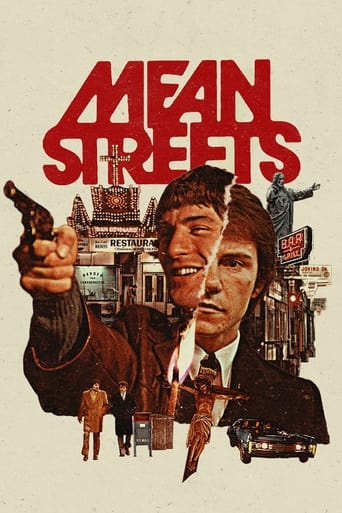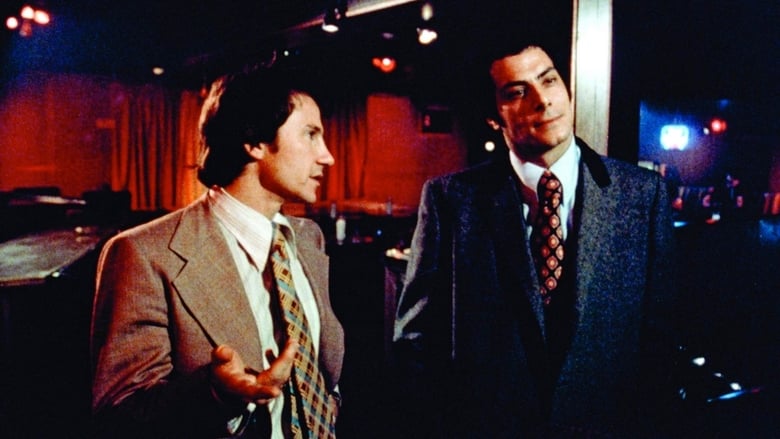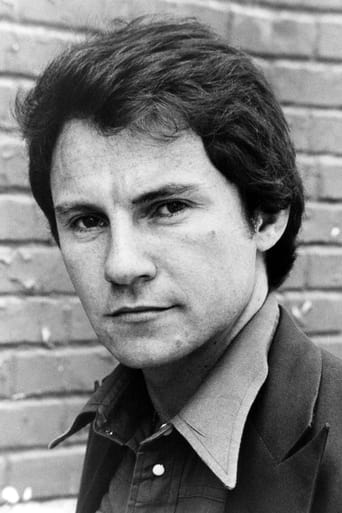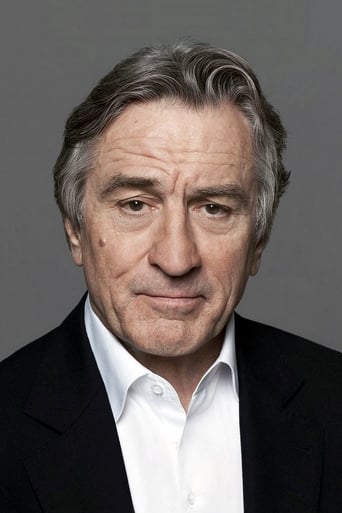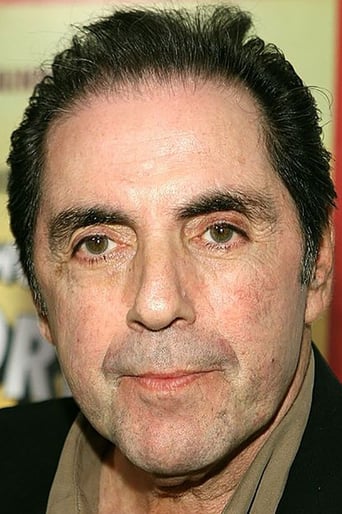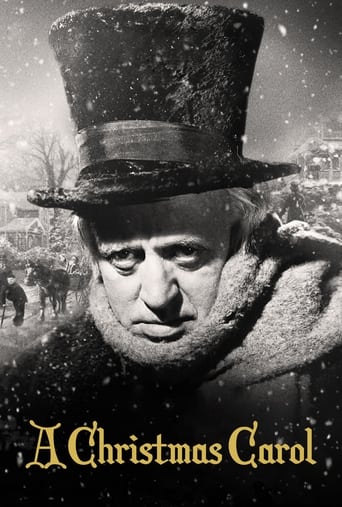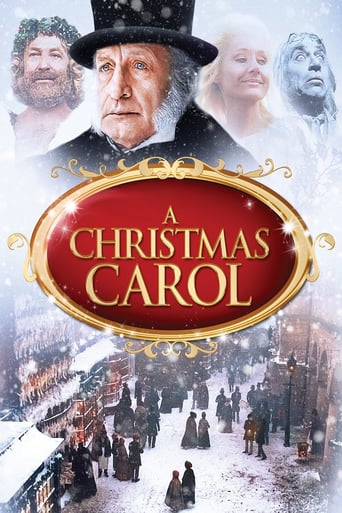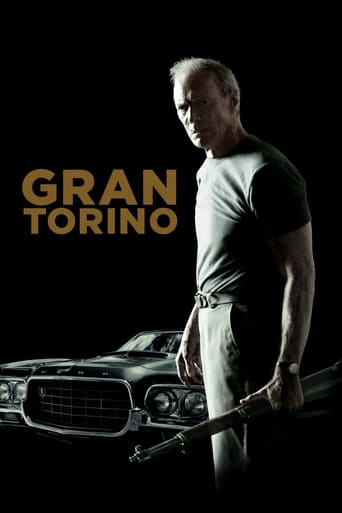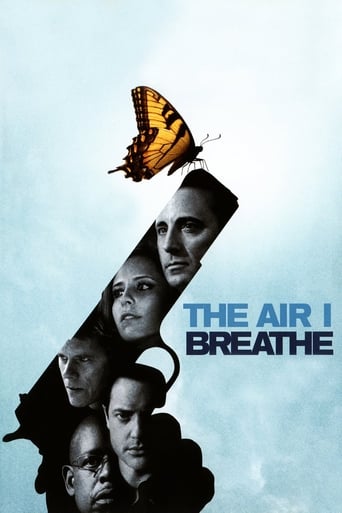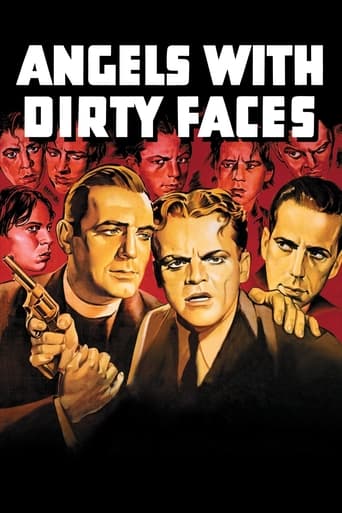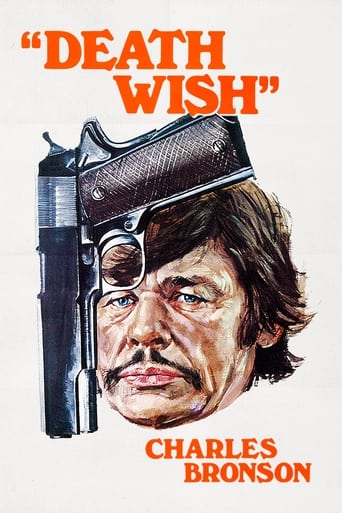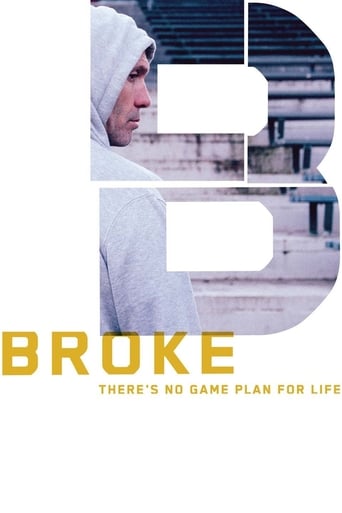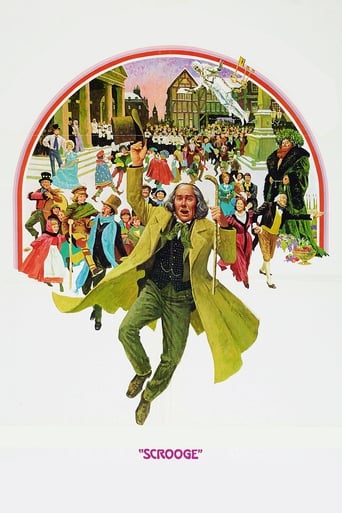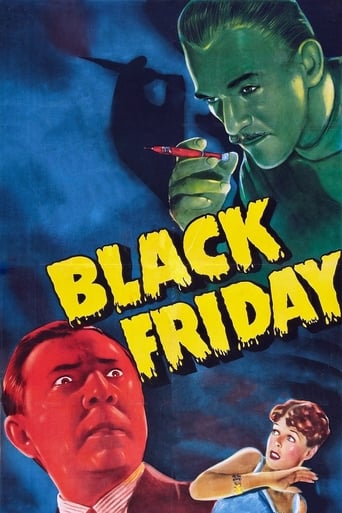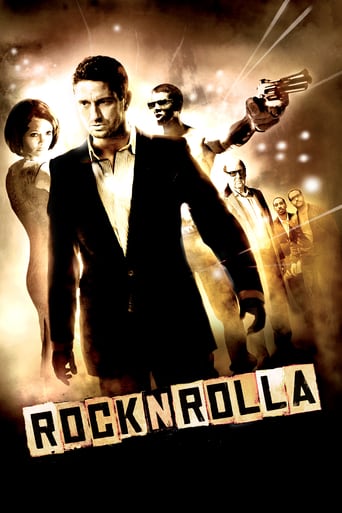Mean Streets (1973)
A small-time hood must choose from among love, friendship and the chance to rise within the mob.
Watch Trailer
Cast


Similar titles
Reviews
'Mean Streets (1973)' is seasoned with sprinklings of greatness, at times showing shades of what Scorsese would go on to do (i.e. 'Goodfellas (1990)'). Despite some solid acting throughout and a few entertaining sequences, though, the film generally falls flat thanks to the fact that there really isn't all that much of a plot and, as such, there isn't any real drama to latch onto. The result is a picture which feels much longer than it is and is also actually rather boring, floating along from set-piece to set-piece without any compelling connective tissue. It ends just as it seems to get going, too. 5/10
I'm not a big Martin Scorsese fan. "Goodfellas" is a true classic I enjoy, but that's not something I can say about his other films. Still, there's a lot of meat to his movies, and you see his vision fleshing out nicely in this confusing yet involving drama.Charlie (Harvey Keitel) is a small-time mobster with dreams of making it big in his neighborhood. He's held back by spiritual concerns as well as a sense of obligation to his loose-cannon buddy Johnny (Robert De Niro) and Johnny's cousin Teresa (Amy Robinson) with whom Charlie is involved. In time, these concerns become dangerous dead weights to Charlie's aspirations."We talk about penance and You send this through the door," Charlie says to God as we watch Johnny making a carefree entrance in the gang's watering hole. "Well, we play by Your rules, don't we?"Actually, we are playing by Martin Scorsese's rules, which means a lot of idle banter and male bonding occasionally interrupted by fisticuffs and/or gunshots. If you enjoyed "Goodfellas," you may be entertained like me by "Mean Streets'" atmosphere of casual danger and goofy laughs. Actually, "Mean Streets" isn't as hard-toned as what you might expect from seeing "Goodfellas;" actual killings are kept to a minimum. But I missed a serious stab at story or structure.There are some visually strong sequences in "Mean Streets." I like the opening credits, which features a home movie. We see Charlie shaking hands with a priest on church steps. Just as the credit comes up "Directed by Martin Scorsese," we see Charlie direct the priest to move into the sunlight for a better shot. It's a clever nod to who this story's protagonist really is.In his typically warm and engaging DVD commentary, Scorsese calls the film "a declaration or statement of who I am" at the time the film was made. Charlie, like Marty, is very likable, a "politician" trying to smooth the waters Johnny roils. It's the film's key problem that, outside of the religious overtones, we don't understand why Charlie cares so much.Johnny is a nasty piece of work, unable to hold his peace even when it's for his own good. This was Scorsese's first collaboration with De Niro, and the actor gives an electric performance, but it lacks for empathy or understanding. He's going to make trouble no matter what Charlie does. Once you realize this, it becomes a weight and a roadblock.Scorsese does plug into the world of New York's Little Italy, his own home neighborhood, in a way that feels vital. There are funny moments on the journey. I like the dialogue Charlie and Johnny have about a pair of girls. Johnny says he wants the one on the left."Your left or my left?""We're both standin' the same way."Scorsese says he was influenced here by Abbott & Costello; it's a welcome relief from his heavier, left-field allusions to William Blake or inserts from famous movies like "Gilda" and "The Searchers."{SPOILERS} And what's the deal with the ending? I get that Johnny has an overdue date with danger, but why is Charlie punished, too? If his problem is standing up for Johnny, he isn't doing so at anyone else's expense. He's as invested as anyone in making restitution, so why is he targeted? Also, I don't understand the objection to Teresa. Charlie's mob-boss uncle tells him she's "sick in the head" because she has epilepsy, but you know who else had that problem? Julius Caesar, the greatest Italian mob boss in history. So what's the real issue? {SPOILERS END}Overall, the film betrays signs of sloppy editing, and includes a lot of go-nowhere scenes that mark time around its undernourished plot. As a story, it's lacking. As a cinematic tone poem, it hits many marks and leaves an impression. So I guess I like it, enough to recommend it to those who liked "Goodfellas." Just don't expect the same kind of film.
'Mean Streets' is Martin Scorcese's edgy breakthrough, reminiscent of Tarantino's 'Reservoir Dogs' & its exciting freshness (Keitel appearing in both), two young directors who became the epitome of cool, though bigger budgets does not necessarily mean better films, i.e. 'Casino', which feels superficial & bloated in comparison to this gritty but soulful first work where neither criminality or violence are glamorised as you sometimes feel they are in his later work (stylised, balletic). At least though, Scorcese hasn't become a parody of himself unlike QT.'The Mean Streets' are the streets of New York's Little Italy district, - the streets of Scorcese's early youth, 'mean' because they can corrupt & brutalise a man's soul. In this brutish world of violence, rigid social codes (racism) & machismo, young hood, Charlie (Harvey Keitel) , intuitively strives towards something purer. This religious dimension is shown at the beginning where Charlie holds his hand over a burning candle in a church where he ponders over the nature of pain (physical & spiritual). We are allowed an insight into Charlie's mind through his narration, thus privy to his private inner being.Charlie is a young man in torment with his world literally becoming hell such as the club Charlie & his associates hang out at, subterranean & shot through with a red hue. In one of the best scenes when Charlie & his associates have a lock-in, a swirling camera captures his disorientated state of mind as if he is on a carousel from which he cannot get off. Some of the images of this film are startling such as the lion kept in a cage. It is surprisingly tender with its hoodlum owner. What does it mean? Is it an allusion to the tenderness within Charlie? Charlie seeks transcendence (redemption) through his friendship & misplaced loyalty with Johnny Boy, a startling performance of frenetic energy & nervous tension by de Niro & his love affair with a local girl Terese, who suffers from epilepsy. He first glimpses her through a window, literally a glimpse into another possibility & kind of life away from the streets, but insecurity & the lure of this easy life pull Charlie back.The film concentrates on Charlie's life & his relationships in a loose structure that suits the film's more reflective moments. Why does Charlie feel such loyalty towards Johnny Boy? It wasn't clear to me, though avik-basu1889's perceptive review explained matters excellently, the religious element in how Charlie attempts to save himself by trying to save Johnny Boy but ironically damns himself.Charlie's life is riven by conflict & divided loyalties, between his Uncle, a local criminal bigwig, who disapproves of his girlfriend, & his criminal associates who are shown disrespect by Johnny Boy. Trouble follows Johnny Boy wherever he goes as he lashes out physically & verbally, literally walking on the edge. An early scene where Charlie & his associates go to collect a gambling debt descends into farce because of Johnny Boy's provocative behaviour. In a milieu where men cannot be seen to lose face for fear of being perceived as weak, Johnny Boy's increasingly erratic behaviour can only lead to a violent outcome.Scorcese's triumph is to give a young hoodlum, depth & spiritual complexity, that beneath the bluster & street swagger lies doubt & moral compromise.
Although Martin Scorsese had made a few movies before Mean Streets, this was the film that brought him critical acclaim for the first time in a big way and this was the film that showcased the birth of a master with a unique sense of style and cinematic language. The screenplay for Mean Streets written by Scorsese and Mardik Martin was based on a story idea by Scorsese himself. He really wanted to make a film about the life that he himself was very familiar with coming from an Italian-American neighbourhood. The film certainly feels very personal and has to be a cinematic reflection of his early life and experiences.I think a comparison between Mean Streets and two other Scorsese gangster films namely Goodfellas and Casino is interesting. While all the three do come under the bracket of gangster films, but I think Mean Streets is significantly distinct from Goodfellas and Casino in the way it is structured. Goodfellas is very tightly structured and the narrative always moves in a very specific direction. Mean Streets on the other hand is very loosely structured. The screenplay doesn't have a lot happening in it and the narrative is very episodic in nature. Scorsese uses this loose and episodic narrative structure to his benefit as it helps him to really pay attention to and develop the characters that make up the film. Charlie and Johnny Boy's relationship serves as the backbone of the film, but in reality Mean Streets is Charlie's story. The film is about him, his insecurity, his religious ideas, his friends, his neighbourhood, his family and last but by no means least, his guilt. Although Scorsese introduces all the boys of the neighbourhood i.e. Charlie, Tony, Michael and Tony with their own individual scenes that established them as the guys we will follow, but in reality we actually get inside the mind of only Charlie. Charlie is a fascinating character. Right from the first shot of the film, we get to be aware of the fact that he is a devout Christian and he really fears the prospect of having to pay for all the sins of crime that he has committed. Unlike his other friends, he is respectful of people and has a heart. He is respectful of the lord, but wants to serve penance in his own way which is to help the wild and slightly dimwitted Johnny Boy. He wants to save Johnny Boy and in turn get saved himself by God. He actually confronts many instances where he can choose what he wants and what is good for him, but we see him repeatedly choosing the opposite. He is attracted to the black dancer, but the collective racism of his friends prevents him from approaching her. He can get together with Teresa, leave this life and this neighbourhood, but he doesn't and cites the prospect of owning a restaurant which his uncle dangled in front of him as the reason to not go away. Like his other friends in the locality, Charlie is also plagued by a firm sense of insecurity. He knows that the life he leads is not ideal and he knew as a devout Christian that he will pay, but he is fearful of going out of this neighbourhood and going somewhere where he is not a big-shot. So he in his mind manipulates things to satisfy himself that by doing good for Johnny Boy, he is serving his penance without having to leave this life. So although in an explicit sense the bond between Charlie and Johnny looks pure with a firm foundation of brotherhood, in a way Charlie does all he does for Johnny mainly because of selfish reasons and his personal desire to serve penance and get 'saved'. Ironically it's this desperation to save Johnny Boy that brings Charlie down. These complexities in Charlie work majorly because Scorsese in his storytelling doesn't judge Charlie. He is presented as a normal person with flaws.Even at such an early stage in his career, we can see Scorsese experimenting extensively here with new and fresh ideas and techniques for the time. There are so many examples of fantastic filmmaking like the super 8 footage during the opening credits with the Ronettes' 'Be My Baby', the long Steadicam shot when Charlie enters the bar dancing with the Rolling Stones' 'Tell Me' playing at the back, Johnny Boy's entrance in the film with 'Jumpin' Jack Flash' playing, etc. I also love how Scorsese shoots all the scenes in Tony's bar in striking red neon light giving the bar a hellish look. I don't think the film is flawless. The editing in a few scenes is a bit choppy which is expected from a young filmmaker. There is an extended scene in the bar where a Vietnam Veteran is given a party. I thought that scene went on for a little too long and became a little too flashy and self-indulgent. Apart from that, the film is brilliantly directed.All the actors perform well but clearly the headliners are Harvey Keitel and Robert De Niro. Keitel is absolutely brilliant in expressing the inner guilt and the complex and sometimes conflicting emotions distressing him along with his desperation to help out Johnny Boy. Robert De Niro in his first of many collaborations with Scorsese is absolutely dynamite as Johnny Boy. The manic eccentricity that De Niro gives to the character is highly impressive. Mean Streets isn't about the plot. It's about the characters and mainly about Charlie. It's about a character who is well aware of the fact that the life he leads is not ideal. But just like the boys in Fellini's 'I Vitelloni', the fear of exploring the unknown prevents him from abandoning the life he knows to pursue something new. Mean Streets gives us an glimpse of the beginning of one of the greatest filmmaking careers in all of film history.

